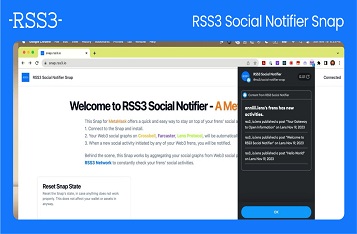
According to insider sources cited by The Financial Times, Crypto.com, the Singapore-based cryptocurrency exchange platform, allegedly operates an in-house trading and market-making team whose primary objective is to generate profits rather than facilitate trading.
However, executives at Crypto.com have issued a solemn declaration to external trading firms, asserting that the company does not engage in any trading activities. Furthermore, employees of the platform have been instructed to disavow any involvement in internal market-making operations.
Crypto.com promptly responded to the allegations, stating that they have not instructed their employees to provide false information to other market participants. The platform acknowledges the presence of an internal market maker, which operates on the Crypto.com trading platform. They claim that this internal market maker receives the same treatment as third-party market makers, contributing to a platform characterized by narrow spreads and efficient markets. The company emphasizes that the majority of its revenue comes from its retail trading application, where Crypto.com acts as the counterparty to customers in a broker model. To ensure risk neutrality, the Crypto.com trading team hedges these positions by trading across multiple platforms, including their own. They assert that all participants on the platform, including market makers, are treated equally, and the company does not rely on proprietary trading as a source of income.
In light of recent allegations surrounding Crypto.com’s proprietary trading practices, concerns have been raised regarding the potential misuse of user data and the impact on market liquidity. While hedged market making has been touted as a means to bolster liquidity, regulators typically view proprietary trading with suspicion, citing the exchange’s access to sensitive user trading data as a significant risk. Notably, on May 23, the Securities and Futures Commission (SFC) of Hong Kong issued regulatory requirements for virtual asset trading platform operators, imposing a complete ban on proprietary trading activities.
The SFC’s regulatory framework explicitly addresses the issue, stating, “With regard to proprietary trading, we agree that liquidity on a trading platform is important for clients. Hence, the SFC allows market-making activities to be conducted by third-party market makers. However, the current prohibition on proprietary trading is all-encompassing and effectively prohibits even the group companies of a licensed virtual asset trading platform from holding any positions in virtual assets.”
The ban on proprietary trading stems from concerns surrounding the potential conflicts of interest and abuse of user data that can arise when an exchange engages in such activities. Regulators argue that by having access to trading data, exchange owners can exploit it to their advantage, leading to unfair practices and potential market manipulation.
- SEO Powered Content & PR Distribution. Get Amplified Today.
- EVM Finance. Unified Interface for Decentralized Finance. Access Here.
- Quantum Media Group. IR/PR Amplified. Access Here.
- PlatoAiStream. Web3 Data Intelligence. Knowledge Amplified. Access Here.
- Source: https://Blockchain.News/news/Cryptocom-Denies-Allegations-of-Misleading-Trading-Practices-Faces-Regulatory-Scrutiny-Over-Proprietary-Trading-Concerns-e98e5931-0148-4a18-b9de-8a9f32068ef8
- :has
- :is
- :not
- :where
- 23
- a
- abuse
- access
- across
- activities
- acts
- addresses
- ADvantage
- All
- Allegations
- allegedly
- allows
- an
- and
- any
- Application
- ARE
- argue
- AS
- Asserting
- asset
- Assets
- At
- Ban
- BE
- been
- blockchain
- bolster
- broker
- by
- CAN
- characterized
- cited
- claim
- clients
- COM
- comes
- commission
- Companies
- company
- complete
- Concerns
- conducted
- Conflicts of Interest
- contributing
- Counterparty
- crypto
- Crypto.com
- cryptocurrency
- Cryptocurrency Exchange
- Current
- Customers
- data
- declaration
- does
- effectively
- efficient
- emphasizes
- employees
- engage
- engages
- ensure
- equally
- Even
- exchange
- executives
- Exploit
- external
- faces
- facilitate
- false
- financial
- Financial Times
- firms
- For
- Framework
- from
- Furthermore
- Futures
- generate
- Group
- Have
- having
- Hedged
- hence
- holding
- Hong
- Hong Kong
- However
- HTTPS
- Impact
- important
- imposing
- in
- Including
- Income
- information
- Insider
- interest
- internal
- involvement
- issue
- Issued
- IT
- ITS
- jpg
- Kong
- leading
- Licensed
- light
- Liquidity
- Majority
- maker
- Makers
- Making
- Manipulation
- Market
- market maker
- market makers
- market manipulation
- market-making
- Markets
- May..
- means
- misleading
- model
- multiple
- news
- notably
- objective
- of
- on
- operates
- Operations
- operators
- Other
- over
- own
- owners
- participants
- platform
- Platforms
- plato
- Plato Data Intelligence
- PlatoData
- positions
- potential
- practices
- presence
- primary
- profits
- Prohibition
- proprietary
- provide
- raised
- rather
- receives
- recent
- regard
- regarding
- Regulators
- regulatory
- rely
- Requirements
- retail
- Retail Trading
- revenue
- Risk
- s
- same
- Securities
- Securities and Futures Commission
- sensitive
- SFC
- significant
- Source
- Sources
- Spreads
- stems
- such
- Surrounding
- team
- than
- that
- The
- The Financial Times
- their
- These
- they
- third-party
- this
- times
- to
- touted
- Trading
- Trading Platform
- treated
- treatment
- typically
- unfair
- User
- View
- Virtual
- virtual asset
- virtual assets
- we
- when
- which
- while
- whose
- with
- zephyrnet












